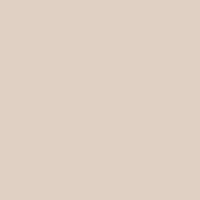Indoor Air Quality
It's highly unlikely that painting or being around paint fumes while you're pregnant will harm your unborn baby, as the risk from our modern water-based paints is very low.
However, to minimise the risk, we recommend using our Joker, a totally safe paint that does not affect the air quality in the room that you are painting (even when wet) and is safe to use while pregnant.
When you are painting with children, use a paint that does not release harmful compounds even when used for an extended period. Tikkurila's range of products includes both paints and lacquers that meet these requirements and are suitable for painting everything in your kid's room, including the walls, furniture, and toys.
All of Tikkurila's paints suitable for children's rooms - such as Joker, Helmi, Taika Pearl Paint, Liitu blackboard paint - are in the highest M1 category for surface materials.
VOC stands for Volatile Organic Compound and these contribute to atmospheric pollution when they evaporate (while you're painting). There are chemicals used in all industries that are classified as VOCs, from paints and building materials to soaps and cleaning products. As a rule of thumb, water-based paints generally very little VOCs, whilst traditional oil-based paints contain some, but in very insignificant levels. If you suffer from asthma it’s definitely worth choosing a zero VOC paint, otherwise, the decision is usually just a preference for one type of paint over another.
While low VOC paint lines are widely available and used, they still contain the chemicals mentioned above and off-gas harmful fumes, though less than traditional paint products historically. The main differentiator for zero-VOC paint is that no VOC chemicals are added to their mixtures, resulting in a product that might only have trace amounts if any.
View our full zero VOC range here.
Tikkurila have a full range of products suitable for use in LEED, BREEAM and WELL building projects. All 3 have different pointing systems where the maximum score is usually 100 points. Paints can normally affect 1-4 points out of 100 points. For paints, lacquers and plasters there are minimum requirements and requirement criteria levels. The requirements relate mainly to indoor use on site. Generally, the requirements are related to the following:
- VOC content in g/l of wet paint and this assessment method (standard or calculation method)
- Product emissions to indoor air g/m 3 (TVOC, formaldehyde)
- Schemes for emissions from construction products (M1, Emicode EC1, Blue Angel, AgBB)
- Material ingredients (hazardous substances)
- Mildew growth protection of products used in wet rooms
- Heat island effect (Solar reflection index, SRI)
- EPD (Environmental product declaration)
The suitability of the products for the project requires cooperation with the project participants. Tikkurila can provide written documentation for compliance of the requirements where applicable. Contact enquiries@valtti.co.uk for further details.
Building materials for interior use, such as paints, can be classified according to the compounds they emit into the air. In Finland, the Sisäilmayhdistys association for good indoor air has published a building material classification that divides products into three classes (M1, M2, M3). The classification has also used in the other Nordic countries and in the Baltic countries.
The M1 class is for materials that emit extremely low levels of compounds into the room space, while materials belonging to the M3 class generate the highest amounts of emissions. Materials that have not been tested do not belong to any class. M1 certification is granted by the Finnish Building Information Foundation to products that have been examined by an accredited testing laboratory and have undergone an organoleptic assessment. Many of Tikkurila’s products are M1-certified.
Applying for an eco-label is always considered when new products are being developed. Almost without exception, we apply for ecolabeling* for every product manufactured in Finland and Sweden. Of our products made in Russia, all water-borne interior paints, solvent-borne varnishes and exterior paints are classified in accordance with the standards of the Russian Quality Paint Association.
* International or national eco-label, allergy or asthma label or M1 classification.










